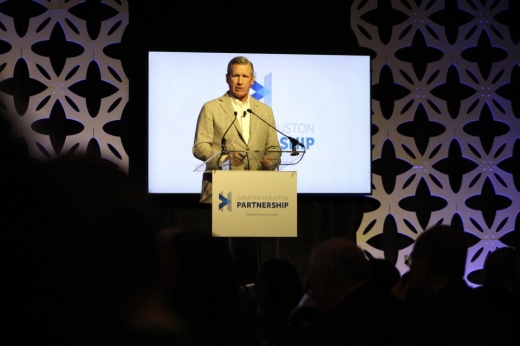“We are great at health care; we are great at patient care; we are great at research. We produce more researchers all the time; we produce more doctors all the time,” Kean said. “But we're like No. 12 in life sciences, ... but this is starting to change, and these firms are working on the most pressing medical challenges of our time."
The Houston region is home to about 1,100 life sciences and biotech companies conducting cancer research and developing life-saving innovations, according to the TMC.
These companies are making their mark across the Greater Houston region—from Cellipoint Bioservices opening its 76,000-square-foot manufacturing facility and headquarters in The Woodlands this March to molecular diagnostics company Castle Biosciences breaking ground on a new corporate headquarters in Friendswood this fall.
By the numbers
With 9,200 total patient beds and over 120,000 employees, the TMC is the largest medical complex in the world. Based in Houston, the center has 50 million developed square feet with another $3 billion in ongoing construction projects.
Each year, the TMC has:
- Ten million patient encounters
- About 180,000 surgeries performed
- Around 750,000 emergency room visits
TMC President and CEO Bill McKeon said the TMC is growing with at least 10,000 job openings on any given day.
“We're building the most comprehensive, efficient life science ecosystem in the world,” McKeon said at the Nov. 14 event. “We already have the largest base of minds and physicians and nurses and technicians and clinical care on one campus in the world.”
The TMC is earning national recognition for its efforts in innovation. TMC Innovation, which supports health care startups, won a 2024 Prix Galien USA award—the highest distinction in life sciences, McKeon said.
He highlighted several recent achievements from TMC partner institutions, including:
- Houston Methodist successfully performed a heart valve replacement surgery on a pregnant woman for the first time.
- Memorial Hermann Health System launched the Health Education and Learning High School in partnership with Aldine ISD to prepare students to high-paying health care jobs.
- Rice University received $18 million from the Advanced Research Projects Agency for Health for tumor analysis research for breast, head and neck cancer.
- The University of Houston has developed a vaccine to prevent fentanyl from entering the brain, and it will go into clinical trials in the coming months.
- Baylor College of Medicine received $44.2 million to create the Consortium for Translational and Precision Health in partnership with the University of Houston.
- The Texas Heart Institute installed the first artificial heart from BiVACOR,
- Harris Health System broke ground on a new $1.6 billion Level I-capable trauma hospital on the Lyndon B. Johnson Hospital campus.
- Texas A&M University is 3D printing medication to treat parasitic infections in pediatric patients.
- The University of Texas Medical Branch received a $46.8 million grant for three years of vaccine development.





